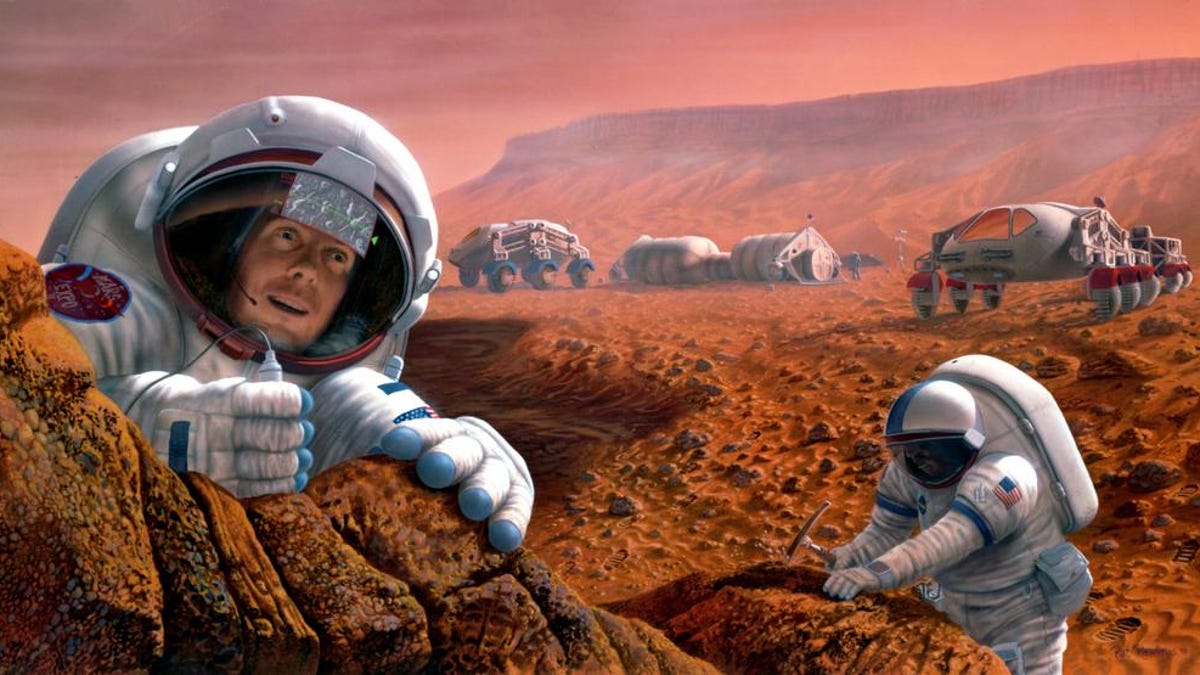Obama sees Americans on Mars, with private help, by 2030s
The president says NASA is working with private space companies to build habitats for living in space and eventually sending humans to the Red Planet.
President Barack Obama wants to make sure Mars is part of his legacy.
In a CNN op-ed Tuesday, Obama said NASA and the US government are working with private companies to get Americans to Mars by the 2030s.
"I'm excited to announce that we are working with our commercial partners to build new habitats that can sustain and transport astronauts on long-duration missions in deep space," Obama wrote. "These missions will teach us how humans can live far from Earth -- something we'll need for the long journey to Mars."
NASA hasn't been shy about promoting its plan to send humans to Mars in the 2030s. In the past few years though, planned private missions to Mars -- by Elon Musk's SpaceX and Mars One, just to name two -- have emerged with far more ambitious timelines.
Just last month, Musk wowed the world with his audacious plan to make humans a "multi-planetary species" by building a Martian colony with 1 million residents this century. During his presentation at the International Astronautical Conference in Mexico, Musk said a public-private partnership would be necessary for humans to make it to Mars.
SpaceX hopes to begin sending robotic demonstration landers to Mars in the next few years and is consulting with NASA to make sure those missions go off in a way that's legal and ethical from a scientific perspective.
"NASA is providing SpaceX with consultation and advice on implementing planetary protection for the Red Dragon robotic demonstration mission, via a Space Act Agreement," a NASA representative told me after Musk's announcement. "Future interactions will be developed in the context of decisions by the US government on regulation of commercial space exploration."
In August, NASA selected half a dozen private partners to develop prototypes of the deep-space habitats that Obama mentioned in his op-ed. Interestingly, SpaceX is not one of those partners, though the company is working on a massive craft that Musk envisions will transport up to 100 people at a time between Earth and Mars.
One of the companies selected was Bigelow Aerospace, which has already seen one of its habitats sent to the International Space Station to see how it holds up in orbit.
Obama's statement also makes it clear NASA won't be pursuing the Mars One model of marooning volunteers on Mars with no plan for a return to Earth.
"We have set a clear goal vital to the next chapter of America's story in space: sending humans to Mars by the 2030s and returning them safely to Earth, with the ultimate ambition to one day remain there for an extended time."
The president's statement comes as he is set to convene the White House Frontiers Conference in Pittsburgh on Thursday. The conference will include an "Interplanetary Frontiers" track with a discussion of the journey to Mars and speakers from NASA, the Roddenberry Foundation, Virgin Galactic and other private space companies.
With Obama on his way out the door, it will be up to his successors to determine how soon humans make it to Mars. Unless, of course, NASA actually winds up taking a backseat and playing more of a supporting role to its private partners.
Musk plans to put human footprints on the Red Planet in the 2020s, perhaps a full decade sooner than NASA's timeline.
What still isn't clear is whether there's a race to Mars getting under way or if it's more of a public-private relay with teammates that can't agree on how fast they should go. Hopefully the picture will become clearer Thursday.


